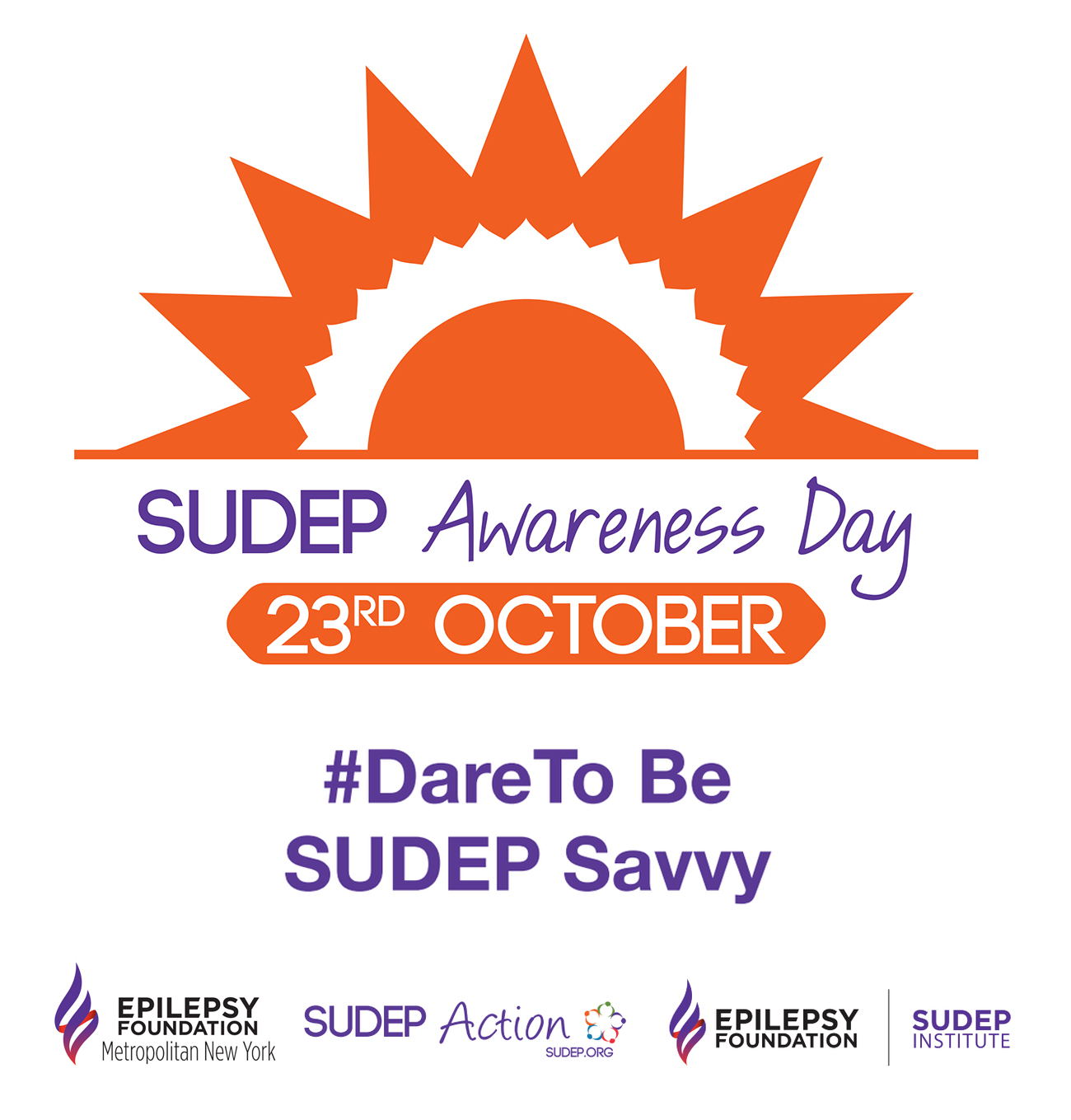SUDEP Awareness Day 2015
What is SUDEP?
Sudden Unexpected Death in Epilepsy (SUDEP) is said to occur when a person with epilepsy dies unexpectedly and was previously in their usual state of health. The death is not known to be related to an accident or seizure emergency such as status epilepticus. When an autopsy is done, no other of cause of death can be found. Each year, more than 1 out of 1,000 people with epilepsy die from SUDEP. However, it occurs more frequently in people with epilepsy whose seizures are poorly controlled.
The Epilepsy Foundation’s SUDEP Institute works to prevent Sudden Unexpected Death in Epilepsy (SUDEP) and support people confronting the fear and loss caused by SUDEP.
How common is SUDEP?
- Each year, more than 1 out of 1,000 people with epilepsy die from SUDEP. However, it occurs more frequently in people with epilepsy whose seizures are poorly controlled.
- One out of 150 people with poorly controlled epilepsy may die from SUDEP each year.
- SUDEP takes more lives annually in the United States than sudden infant death syndrome (SIDS).
- Most importantly, SUDEP is the leading cause of death in young people with certain types of uncontrolled epilepsy.
Who is at risk for SUDEP?
The greatest risk factor for SUDEP is frequent seizures, especially generalized tonic-clonic (grand mal) seizures. Other risk factors being looked at include:
- Epilepsy beginning at an early age
- Having epilepsy for a long time
- Not taking medications regularly or as prescribed
- Stopping or changing medications suddenly
- Young adult age (20-40 years old)
- Intellectual disability (IQ<70)
How can one reduce the risk?
The best way to prevent SUDEP is to have as few seizures as possible. Get the best seizure control possible. This may involve actions such as:
- Taking medication regularly and at the right dose.
- Visiting your health care team regularly, especially if seizures are not controlled.
- If medicines do not work, consider other therapies such as epilepsy surgery, vagus nerve stimulation, or dietary therapy.
- Take good care of yourself or your loved one. Eat well, get enough rest and regular exercise, avoid drinking too much alcohol or using recreational drugs, and minimize stress when possible.
- Be aware of and avoid any potential seizure triggers whenever possible. Keep a record of things that occurred before a seizure (such as illness, tiredness, stress, missing medications, and where and when the seizure occurred).
- Talk to your doctor about having your heart checked (cardiac evaluation) to rule out any heart problems. This is particularly important for people with uncontrolled epilepsy who don’t have a cause for their epilepsy found on an MRI or other type of imaging study.
- Be seizure safe. Make sure family and co-workers know what to do for seizure first-aid, take extra precautions around water, including swimming and bathing.
Speaking with your doctor about SUDEP?
If your doctor has not spoken to you about the health risks associated with epilepsy, you should ask him or her about SUDEP. Questions to ask may include:
- What risks do I or my family member have for SUDEP?
- What can we do to lessen the risk of SUDEP?

Source: EFA – SUDEP
